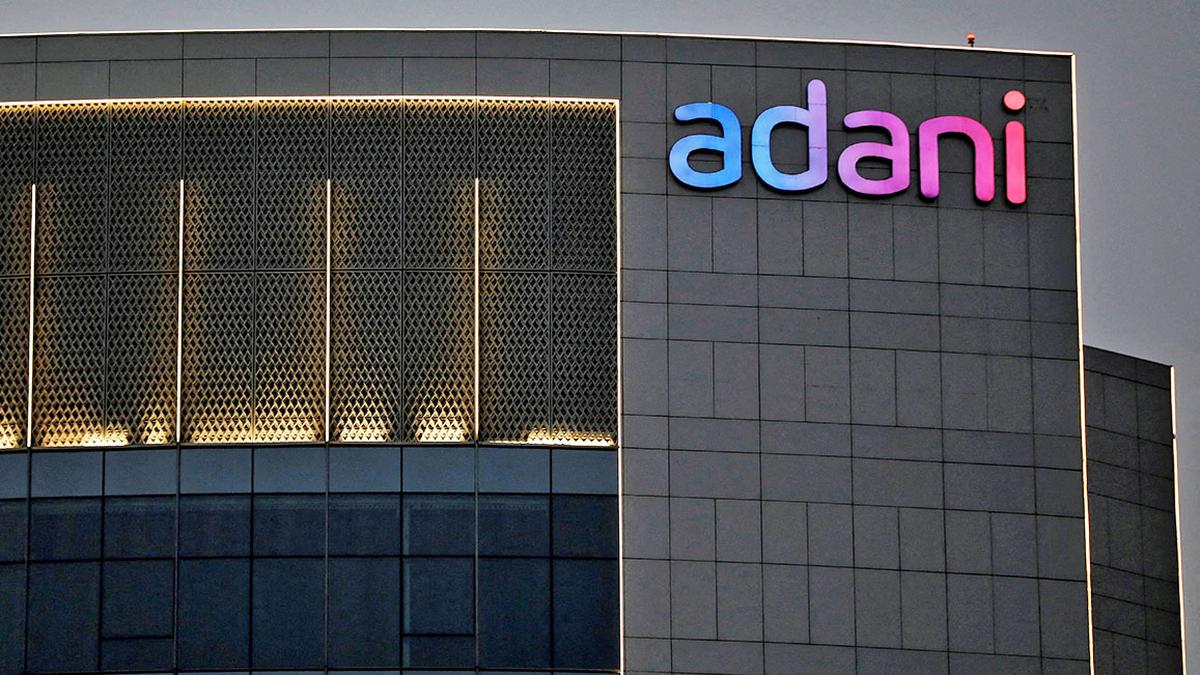The logo of the Adani Group is seen on the facade of one of its buildings. File
| Photo Credit: Reuters
A review petition was filed on Tuesday in the Supreme Court seeking a relook of its January verdict backing the investigation of the Securities and Exchange Board of India (SEBI) in the Adani-Hindenburg case and refusing to transfer the probe to the Central Bureau of Investigation or a Special Investigation Team.
The petition seeking a review of the judgment, a rare remedy, said the investigation reports of the market regulator should be made public.
The SEBI has been conducting 24 separate investigations after the U.S.-based firm, Hindenburg Research, published a report accusing the Adani Group of having manipulated its share prices besides failing to disclose transactions with related parties in violation of the regulations framed by the Board and securities’ laws.
OCCRP findings
Petitioners in the Supreme Court had questioned the efficacy of the SEBI probe and accused the statutory organisation of regulatory failure. They had relied on the findings of Organised Crime and Corruption Reporting Project (OCCRP), published in two international newspapers, alleging price manipulation by the Adani Group through two Mauritius-based funds. The petitioners had claimed conflict of interest against some members of the Supreme Court’s own expert committee.
On January 3, the Supreme Court concluded that the SEBI investigation “inspired confidence” and there was no regulatory failure on its part. The regulator had already completed 22 of the 24 investigations. The judgment, authored by Chief Justice of India D.Y. Chandrachud, said the OCCRP findings were not credible evidence against a statutory body like the SEBI. The court said the allegations of bias raised against the expert committee members were not even worth consideration.
In the review petition, Anamika Jaiswal, represented by advocates Prashant Bhushan, Neha Rathi and Cheryl D’Souza, argued that the SEBI “has only updated the status of the 24 investigations as complete or incomplete and failed to disclose any findings or details on action taken. Unless the findings of the SEBI investigations are publicly reported it cannot be concluded that there has been no regulatory failure”.
The review petition urged the court to set a “firm deadline” for the SEBI to complete the remaining two investigations.
It said the SEBI has been unable to unearth the “economic interest shareholders” and “ultimate beneficial owners” of 13 overseas entities under investigation.
“This, by itself, constitutes glaring evidence of regulatory failure… That despite investigation, the SEBI has not filed any case under the Prevention of Money Laundering Act, 2002 or the violation of Section 12A of the SEBI Act, 1992 against the suspected overseas entities or the Adani Group of companies,” the review petition said.
The review petition referred to the expert committee report which said the amendments made by the SEBI in its Foreign Portfolio Investors (FPI) Regulations in 2018 and 2019 had created a “chicken-and-egg situation”, impeding its own investigation.
“Changes in the FPI Regulations may not help in the investigations into the 13 overseas entities, because their investments and transactions, which are being probed now, were undertaken much before the new regulatory norms were notified… It is probable that some, if not all, of these overseas entities have significantly adjusted their shareholdings by now or have simply renamed themselves or closed shop altogether with their ultimate beneficiary ownership remaining concealed,” the review petition submitted.
